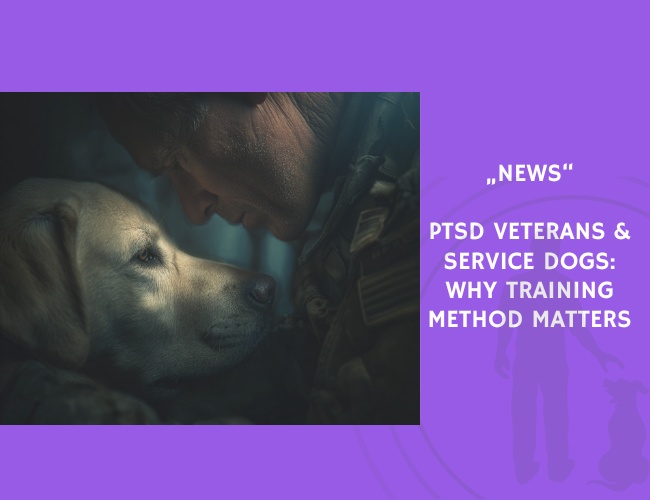When war comes home, healing often begins with a dog. But the method used to train that dog could mean the difference between connection and disconnection.
Bond beats dominance: In a study of 111 military veterans with PTSD and their psychiatric service dogs, LaFollette et al. found that training methods directly affect the bond between handler and dog. Positive punishment (like harsh corrections) was linked to less eye contact, lower trust, and weaker emotional closeness.
Reward works best: Conversely, veterans who used positive reinforcement or bond-based strategies (such as co-sleeping and gentle touch) reported higher levels of playfulness, attachment, and mutual closeness. These methods fostered a more emotionally responsive service dog and improved handler satisfaction.
Why this matters: The findings underscore a powerful point: not all training builds trust. At Zoeta Dogsoul, our NeuroBond philosophy goes beyond technique—it restores emotional clarity. We train through relationship, not resistance. Learn more about our Training App designed to teach connection, not control.
https://doi.org/10.3389/fvets.2019.00023










